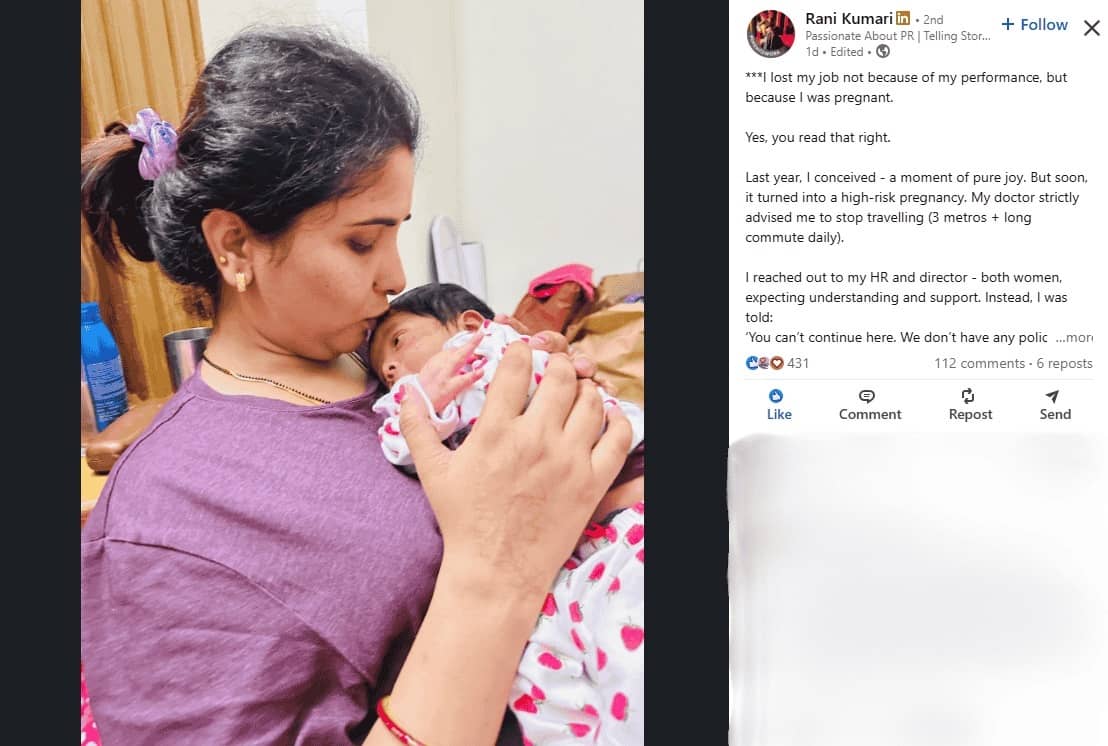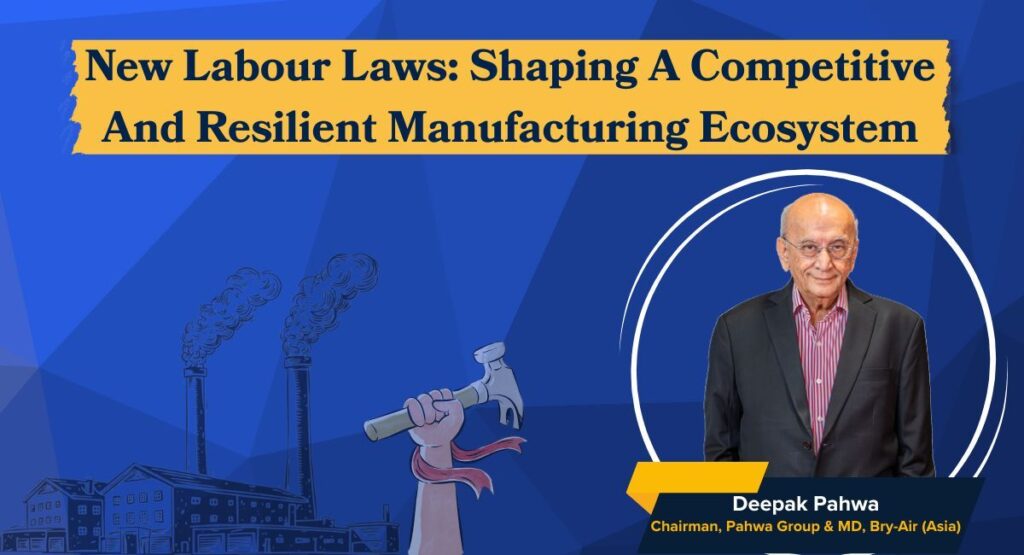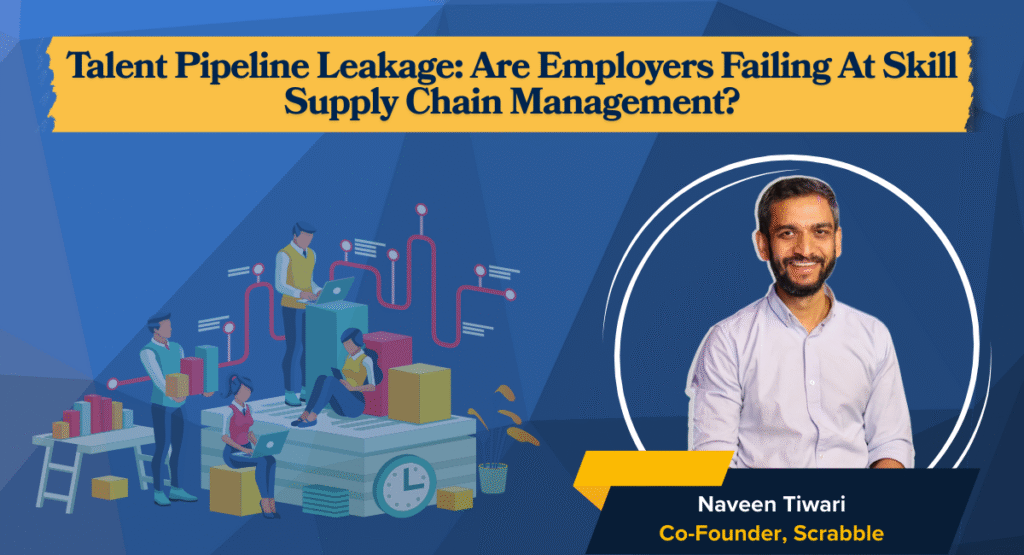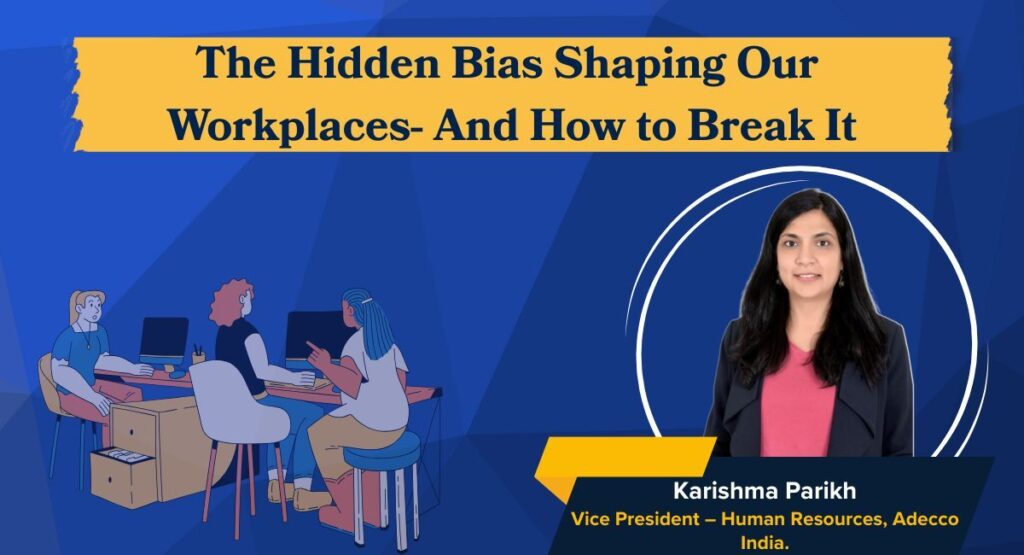 “I lost my job not because of my performance, but because I was pregnant.”
“I lost my job not because of my performance, but because I was pregnant.”
As unfair and absurd as that statement sounds, for Rani Kumari, this is a reality that she had to face only a short time after she learned she was to be a mother. A seasoned PR professional, Kumari shared her frustration over being unable to find a job due to an apparent bad reference and the lack of conversation around it.
What should have been a time to enjoy motherhood has become a tiring routine of applying for jobs, going through the hiring process and then not hearing back, according to Kumari.
A Lack of Understanding
According to Rani Kumari, after she learned she was pregnant, her doctor strictly advised her to stop travelling. Given that her daily commute included three metros, she hoped to find a compromise. However, as per Kumari, the response she received was unexpected.
“I reached out to my HR and director – both women, expecting understanding and support. Instead, I was told: ‘You can’t continue here. We don’t have any policy for such cases. You may reapply when you’re healthy again.’ I requested WFH, unpaid leave or a sabbatical. The answer was No,” Kumari shared on LinkedIn.
Kumari later tried to speak up about the unfairness of the situation, but apparently found all roads blocked.
“When I later spoke up, both on my own posts and on a senior HR leader’s post, my comment was deleted, I was blocked, and soon after, I was threatened: ‘The industry is small. You won’t get a job. We’ll ensure you get bad feedback,’” said Kumari.
Kumari claimed that her further attempts to secure a job started going nowhere. With interviews stopping mid-way, she later learned that her previous company had given her a bad reference.
A Much-Needed Conversation
In her post, Kumari addressed a point that often goes unnoticed. She addressed not her past employers but HR leaders across the country, asking why they only considered one-sided feedback.
“Why not ask the employee directly? Why not check with clients who worked with us? Why accept one-sided feedback without consent?” Kumari asked, sparking a debate that is perhaps much needed.
While references are indeed crucial for any recruiter and employer, should a bad one lead to immediate rejection? Every story often has two sides, but according to Kumari, she was ghosted rather than asked questions by recruiters.
“Dear HR, if you’re going to ghost me, at least don’t make me waste my time first. “I’ll get back to you.” Let’s be real — 90% of the time, it means you won’t,” Kumari had said in another post, highlighting her frustration with the recent events.
Pregnancy, Past, and Present
“I’m not giving up. I’m looking for guidance, leads, or simply a fair chance to prove myself again. Because motherhood should never mean the end of one’s career!” Kumari insisted, emphasising her determination.

Kumari’s apparent experience with her past company touches upon two critical aspects of India’s workplace culture. While laws like the Maternity Benefit Act of 1961 safeguard women’s rights in the workplace, do they truly provide a safe environment?
Many women in the workplace often find themselves sidelined from projects or feel like they are being given fewer opportunities owing to their pregnancy and upcoming motherhood. Instead of amicable measures, they feel undervalued.
“On my last day, colleagues acted as if I never existed,” Kumari had revealed, and this is certainly a feeling no employee should ever have to go through.
Bad Reference: An End or a Start?
Another aspect of Kumari’s woes was the impact of a single bad reference and the lack of conversation around the same. If a bad reference was given, it should indeed be a sign of caution and handled carefully. However, should it lead to complete rejection?
More often than not, a reference check is one of the last steps in the recruitment process, typically conducted for candidates whom recruiters and/or employers are close to hiring.
In such cases, is it unrealistic for a candidate to expect a discussion over a bad reference? That is the question that Kumari has asked, echoing the sentiments of many in a similar situation.




